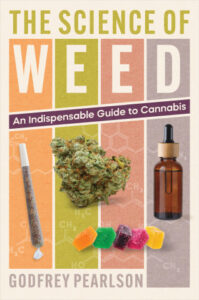 One of the many benefits of cannabis being made legal for recreational use in twenty-four U.S. states and the District of Columbia is that for the first time since it was made illegal nationally in the country under the Marihuana Tax Act of 1937 it can now be discussed with both reason and rationality amongst serious-minded people with no ulterior motive either way regarding its legality or use. Of course, in order to engage in such discussions, objective information about it must be available to those interested in learning its history, its chemical properties, the effects it has on the human body and mind, and the larger societal effects of it being used recreationally and medicinally by a significant portion of the population.
One of the many benefits of cannabis being made legal for recreational use in twenty-four U.S. states and the District of Columbia is that for the first time since it was made illegal nationally in the country under the Marihuana Tax Act of 1937 it can now be discussed with both reason and rationality amongst serious-minded people with no ulterior motive either way regarding its legality or use. Of course, in order to engage in such discussions, objective information about it must be available to those interested in learning its history, its chemical properties, the effects it has on the human body and mind, and the larger societal effects of it being used recreationally and medicinally by a significant portion of the population.
One such new resource for such information has just been published by Johns Hopkins University Press: Prof. Godfrey Pearlson‘s The Science of Week; An Indispensable Guide to Cannabis. Holding the position of Professor of Psychiatry and of Neuroscience at the Yale School of Medicine, Dr. Pearlson’s new book purports to provide an objective and unbiased exploration and explanation into the the plant’s chemical structure and composition, as well as its effects on the human body. Furthermore, the publisher also indicates that Dr. Pearlson “discusses the plant’s collective impact on economics and the health care system, demonstrating how scientific scrutiny can bring enlightened reason to the contentious debates surrounding the drug.”
As one who grew up hearing the often inaccurate and sometimes downright laughable propaganda preached year after year in school, church, and Scouts regarding the dangers of the “demon weed,” and then more recently the just as often inaccurate and equally laughable pro-marijuana legalization rhetoric of cannabis enthusiasts, I look forward to reading this new book both to discover if it lives up to the promises its promotional materials make about it as well as to – it is hoped – finally develop a sufficient foundation of understanding to engage in reasonable and rational conversations about it.
If you enjoyed reading this, please consider signing up for The Well-read Naturalist's newsletter. You'll receive a helpful list of recently published reviews, short essays, and notes about books in your e-mail inbox once each fortnight.
